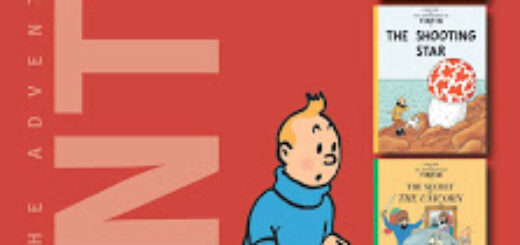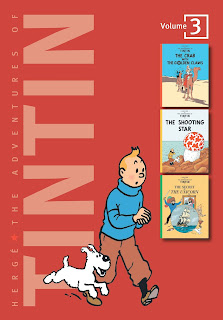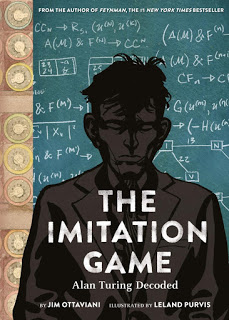Book-A-Day 2018 #357: The Adventures of Tintin, Vol. 3 by Herge
I still feel like there’s something wrong with a forty-nine-year-old man reading the Tintin books for the first time, but it’s not like I can go back and read them any earlier now, can I?
The Adventures of Tintin, Vol. 3 collects three WWII-era Tintin stories: The Crab with the Golden Claws, The Shooting Star, and The Secret of ‘The Unicorn’. I say “WWII-era,” but there’s no indication at all in the stories themselves that a global war was going on. It’s the same world of adventure and derring-do as the earlier books (see volumes one and two ), full of smugglers and pirates and ruffians, all of whom must eventually fall to the legitimate authorities (though the villains of Shooting Star are state-backed; it’s a fictional South American state and they’re explicitly nasty capitalists).
These books came in quick succession: serialized one after the other (1940-41, 41-42, 42-43); and all were published in color book editions by the end of 1943. Herge was clearly a powerhouse — remember this was in Belgium, in the middle of the war, with all of the related shortages and controls.
But, again, none of that shows in the stories: they’re adventure tales about criminals: drug smugglers, sharp-elbowed capitalists from fictional countries, murderous hunters of lost treasures. And they are after strange and mysterious things, mostly: a strange meteor that crashed in the North Atlantic, a pirate’s treasure. (Though Golden Claws, and from Tintin’s side Unicorn, are both cases where he gets caught up in something and has no idea what nefarious plot is going on, just that something is obviously wrong.)
Golden Claws introduces Captain Haddock, who I gather becomes a major supporting character from that point forward. His character has not aged well, and it takes the previously wince-inducing scenes of Tintin or his dog Snowy “accidentally” getting drunk and sloppy in the earlier books and makes them even bigger, more violent and stereotypical when it’s a big, bearded guy doing the drinking. I hope that he develops a character other than “alcoholic who is stupidly combative when drunk” in later books.
This omnibus series makes an interesting — that word here means “inexplicable” — choice by ending with Unicorn; that book apparently leads directly into the next book, Red Rackham’s Treasure. Or maybe the publishers figured their readers would be hooked anyway by volume three, so a little cliff-hanger wouldn’t hurt anyone. In any case, this book ends very obviously with a “buy the next book” message.
The Tintin stories have been the formative adventure tales in comics form for several generations of young people by this point — more in Europe than on my side of the pond, obviously, but he’s still a treasure of world literature. And the stories do still mostly hold up, aside from the comic drunkenness. If you have young people in your orbit, they might still find this exciting: it’s got all of the good stuff.
![]()
![]()
Reposted from The Antick Musings of G.B.H. Hornswoggler, Gent.
























